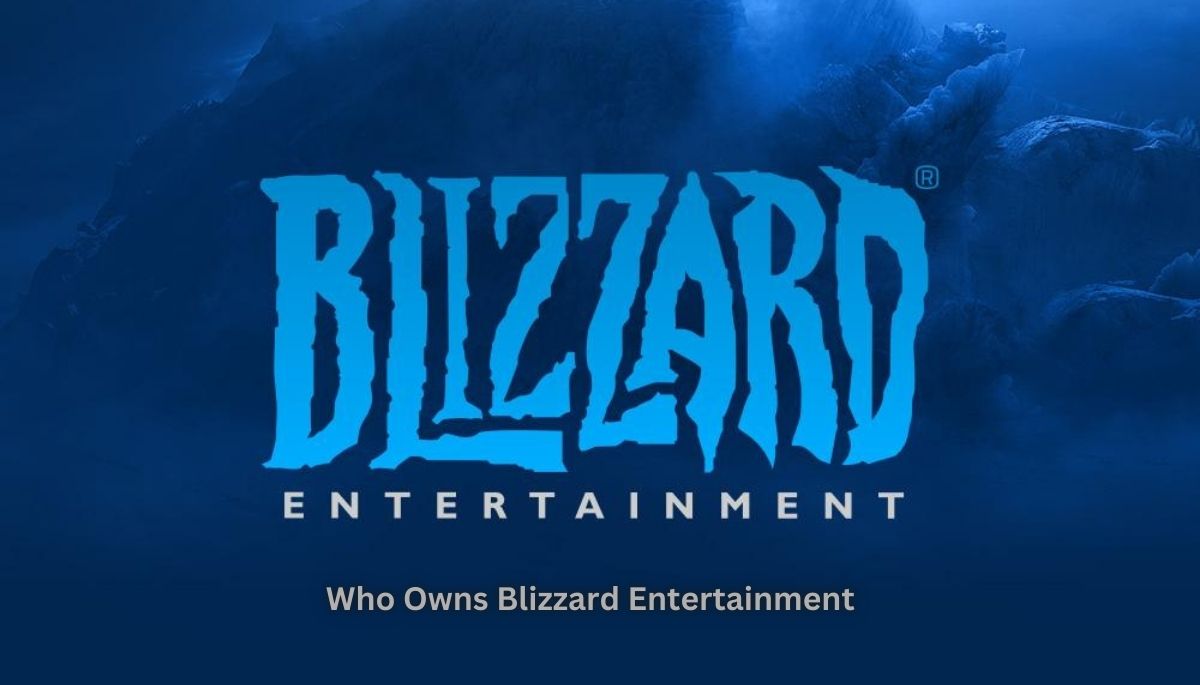Blizzard Entertainment, one of the most iconic game developers in the world, has left an indelible mark on the gaming industry. From creating groundbreaking franchises like World of Warcraft, Diablo, and Overwatch, Blizzard is a powerhouse that consistently delivers high-quality games loved by millions of players worldwide. But behind its legendary status, a question arises: who truly owns Blizzard Entertainment?
The Early Days of Blizzard Entertainment
Blizzard Entertainment was founded in 1991 as Silicon & Synapse by three UCLA graduates: Michael Morhaime, Allen Adham, and Frank Pearce. Initially, the company developed games for other studios, but they soon started releasing their own titles, such as The Lost Vikings and Rock N’ Roll Racing. These early successes paved the way for Blizzard’s eventual dominance in the gaming industry.
In 1994, the company rebranded as Blizzard Entertainment and launched Warcraft: Orcs & Humans, which set the stage for its future as a leader in the real-time strategy genre.
The Merger with Activision: Activision Blizzard Is Born
The pivotal moment in Blizzard’s history came in 2008 when it merged with Activision, another major player in the gaming world. This merger formed Activision Blizzard, a company that would soon become one of the largest video game publishers in the world.
At the time of the merger, Blizzard Entertainment was already operating as a subsidiary of Vivendi Games, a division of the French media conglomerate Vivendi SA. The merger with Activision allowed Vivendi to retain a controlling stake in the combined entity. However, Activision Blizzard was born out of this merger, combining Activision’s strong presence in console games with Blizzard’s dominance in PC gaming.
Vivendi’s Control and Exit
Vivendi initially held a majority stake in Activision Blizzard, but the company’s influence began to wane over the years. In 2013, Activision Blizzard completed a share buyback from Vivendi, allowing it to regain a significant degree of independence. The buyback reduced Vivendi’s stake in Activision Blizzard to 12%, marking a shift in the company’s ownership structure.
By 2016, Vivendi had entirely exited Activision Blizzard, and the company was free from its influence. This marked a new era of autonomy for Activision Blizzard, giving it the flexibility to operate without the constraints of a parent corporation.
Activision Blizzard Today: A Subsidiary of Microsoft
The most recent chapter in Blizzard Entertainment’s ownership story came in 2022 when Microsoft announced its intention to acquire Activision Blizzard in a landmark deal worth $68.7 billion. This acquisition, one of the largest in gaming history, significantly altered the corporate landscape of the gaming industry.
With this acquisition, Blizzard Entertainment became a part of Microsoft’s Xbox Game Studios. This move was strategic for Microsoft, as it sought to bolster its portfolio of exclusive content and enhance its position in the competitive gaming market.
The acquisition brought several high-profile franchises, including Call of Duty, Candy Crush, and World of Warcraft, under Microsoft’s umbrella. Microsoft now controls Activision Blizzard, making Blizzard Entertainment a subsidiary of the tech giant.
Blizzard Entertainment’s Global Influence
Despite the changes in ownership over the years, Blizzard Entertainment has maintained its reputation for creating immersive and genre-defining games. Its portfolio of titles, including World of Warcraft, StarCraft, Diablo, and Overwatch, continues to shape the gaming landscape.
Blizzard’s games are not just popular in the United States but also enjoy a massive following across the globe. Its esports initiatives, particularly with games like Overwatch and StarCraft II, have further cemented its status as a global gaming icon.
The Future of Blizzard Entertainment Under Microsoft
With Microsoft now at the helm, Blizzard Entertainment is poised for a new era of growth and innovation. Microsoft’s acquisition opens up opportunities for cross-platform development, particularly with its Game Pass subscription service. It’s expected that many of Blizzard’s beloved franchises will be added to the Game Pass library, making them more accessible to a broader audience.
Moreover, Microsoft’s vast resources and technological expertise may provide Blizzard Entertainment with the tools to innovate even further, potentially leading to new breakthroughs in game development and publishing.
However, the acquisition has not been without controversy. Regulatory bodies around the world scrutinized the deal, with concerns over potential monopolistic practices. The gaming community has also expressed concern over whether Blizzard’s creative freedom might be stifled under Microsoft’s ownership. Nonetheless, the acquisition signals a new chapter for Blizzard and its dedicated fanbase.
Conclusion
Blizzard Entertainment’s journey from its humble beginnings as Silicon & Synapse to becoming a subsidiary of Microsoft is a testament to its enduring influence in the gaming world. Today, Blizzard Entertainment is not just a game developer; it is a cultural phenomenon with a fanbase spanning millions. Under Microsoft’s ownership, it’s poised for even greater heights, continuing to produce games that captivate and engage players worldwide.
Read more – Sophie Turner Game Of Thrones
#blizzardEntertainment #blizzard #activisionBlizzard #bigBossBlizzardEntertainment #entertainment #activisionBlizzardEntertainment #theHistoryOfBlizzardEntertainment #blizzardGames #blizzardBoycott #legendaryEntertainment #downfallOfBlizzard #blizzardBansBlitzchung #blizzardChina #blizzardNorth #theStateOfBlizzard #blizzardHeroes #blizzardControversy #aaBlizzardGames #newBlizzardGame #declineOfBlizzard #fallOfBlizzard #whyDidBlizzard
